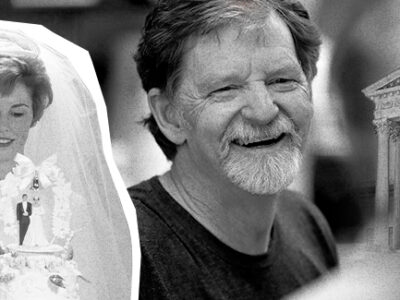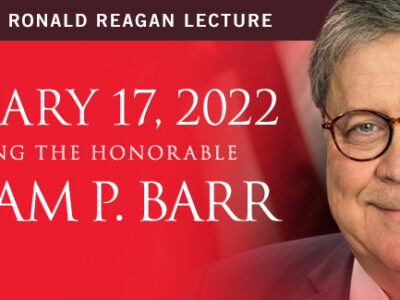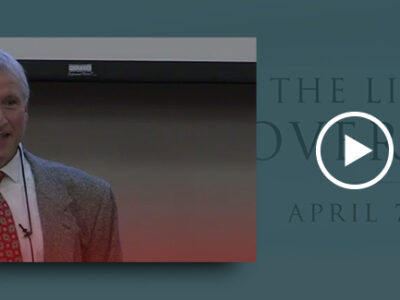When we open our newspapers on Father’s Day, we expect to find an article on dads. These are often tributes to heroic dads. Yet, for every boy or girl whose father was a fireman, a doctor, or Marine who stormed the beaches of Normandy, there is a dad who was more complicated: not a great dad but one still loved and who had an impact, sometimes in unintentional ways. This describes a father I’ve studied: Jack Reagan, father of Ronald Reagan, the former president who recently left this world.
John Edward “Jack” Reagan was born in Whiteside County, Illinois on July 13, 1883, 11 days before Nelle Clyde Wilson, whom he married 21 years later in the town of Fulton. Nelle and Jack had two children—Ronald and Neil, nicknamed “Dutch” and “Moon,” respectively, by their parents. A split developed in the Reagan household over religion; Jack was Catholic, Nelle a Protestant. Both parents’ overriding concern was that their boys believe in God and go to church. Nelle, a model of Christian virtue, was much more devout than Jack. Jack left the boys’ religious rearing to Nelle, and Dutch gravitated toward her faith. Quite unintentionally, however, Jack contributed to Dutch’s faith.
Jack was consumed with financial survival. The shoe salesman scraped and scrapped so he and his family could simply get by. And before long, drinking—a lot of drinking—was helping him to cope.
Jack uprooted the family at every turn. Throughout young Reagan’s childhood, his family never owned a home and was always hunting for an affordable rental. Ronald Reagan would live in 37 different residences in his lifetime, the majority coming before he left home for adulthood.
In one of these moves, to the Illinois town of Galesburg, Ronald had a kind of epiphany. The lonely boy ventured to the attic of his latest home. The previous tenant left behind a collection of bird’s eggs and butterflies enclosed in glass. The curious first-grader escaped into the attic for hours at a time, marveling at the eggs’ rich colors and the intricate wings of the butterflies. “The experience,” Reagan remembered, “left me with a reverence for the handiwork of God that never left me.” These wonderments were like “gateways.” The notion of a Creator was etched into the boy’s consciousness. He later thanked that previous tenant as “an anonymous benefactor to whom I owe much.” Ironically, this dramatic rendezvous with the Creator was Jack’s inadvertent doing.
Moving took a toll on the young Ronald; it created a void in him—a hole that religion came to fill. In need of a rock of reliability, he looked to where his mom, his heart, and his desolation pointed him—upward, and found what he perceived as a permanent friend in God, always in His place, accessible at any moment.
Another foible of Jack’s may have contributed to Dutch’s turn to God. It was a brisk February evening in Dixon, Illinois in 1922. Returning home from a basketball game at the YMCA, 11-year-old Reagan expected to arrive to an empty house. Instead, he was stunned by the sight of his father sprawled out in the snow on the front porch. “He was drunk,” his son later remembered. “Dead to the world … crucified.” Jack’s hair was soaked with melted snow, matted unevenly against the side of his reddened face.
Dutch stood over his father for a minute or two. He wanted to simply let himself in the door and pretend his dad wasn’t there. Instead, he grabbed a fistful of overcoat and heaved Jack to the bedroom, away from the weather’s harm and neighbors’ attention. Dutch felt no resentment, just grief. This was the man who had always carried him.
The event shook the young Reagan; he never forgot it. Four months later he was baptized at his mom’s church.
The story of Ronald Reagan’s dad is sad. Yet, it describes many father-son relationships, and reveals how a complex father can possess both negative and positive attributes—and, yes, there were positives.
Jack instilled in Ronald Reagan the work ethic that propelled him into radio, then the movies, and then television in the heyday of each medium. In the 1930s, when most of America suffered, Reagan soared. He would go on to twice win the governorship of the nation’s largest state and the presidency of the world’s most powerful nation. His father taught him that success comes from within, not by a handout. Dutch saw in his dad an ability to roll with the punches, a trait crucial to Reagan’s thick political skin. He also learned from his father the gift of gab—the knack for a good story that the Great Communicator mastered.
Completely neglected by history was Ronald Reagan’s hatred of bigotry. (Critics called him a racist—a charge that bothered him more than any other.) Here, too, his dad had a role. Jack didn’t just tell Dutch that racism was bad; he shared indelible accounts that Reagan retold throughout his life.
Dads can’t do everything. For Jack, trying to make a buck was hard enough. For the duty of spiritual development, he delegated to his wife. Give him credit: he knew his limits and Nelle’s strengths, and chose well. Nelle was better suited for the task. She excelled at it, and turned Ronald Reagan into a devout believer: an extremely important facet of Reagan’s life and presidency only now being learned.
The Reagans together, both Jack and Nelle, serve as an excellent example of how it takes two—a mom and dad, each bringing separate strengths to the table—to best raise a child. That’s a worthwhile thing to remember on Father’s Day and any day.




